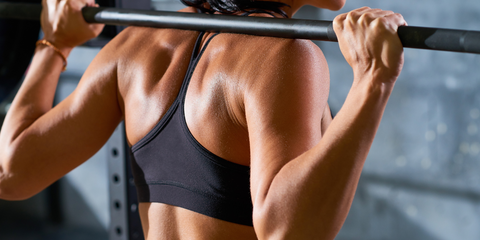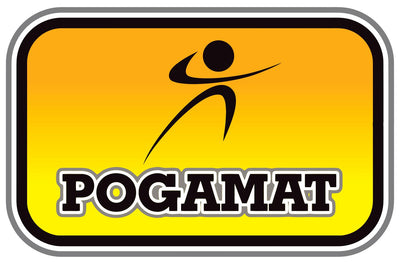Maximizing Your Workouts: How to Eat for Weight Loss and Muscle Gain
The Importance of Proper Nutrition for Fitness Goals and Muscle Gain
Are you tirelessly working out at the gym, yet not achieving the muscle gain you've been striving for? The secret to unlocking your fitness potential may be hidden within your nutrition. In this section, we'll explore the powerful connection between nutrition and workout performance and how optimizing your diet can enhance muscle growth, weight loss, and overall success in reaching your fitness goals.
Relationship between Nutrition and Workout Performance for Muscle Gain
The food you consume plays a critical role in determining your performance during workouts. Eating the right balance of macronutrients can provide you with the energy required to tackle even the toughest exercises while ensuring your body has the nutrients it needs to recover and grow stronger. By optimizing your nutrition, you're laying a strong foundation for success in the gym and maximizing your muscle gain potential.
How Nutrition Supports Muscle Growth and Weight Loss
Proper nutrition is essential for supporting both muscle growth and weight loss. For muscle gain, consuming an adequate amount of protein is crucial, as it supplies the building blocks necessary for repairing and building new muscle tissue. In addition, eating the right balance of carbohydrates and fats can fuel your workouts, enabling you to push yourself harder and burn more calories.
When it comes to weight loss, nutrition plays a key role in creating a calorie deficit, which is necessary for shedding pounds. By choosing nutrient-dense foods that are lower in calories but high in essential nutrients, you can keep your body fueled and satisfied while still promoting weight loss. Balancing your macronutrient intake can also help you maintain lean muscle mass while losing fat, leading to a more toned and sculpted appearance.
The Role of Macronutrients in Achieving Fitness Goals
Each macronutrient - carbohydrates, proteins, and fats - plays a distinct role in helping you achieve your fitness goals:
- Carbohydrates provide your body with energy, which is crucial for fueling your workouts and supporting your daily activities. Choosing the right types of carbohydrates, such as whole grains and fruits, can help you maintain steady energy levels and avoid energy crashes.
- Proteins are essential for muscle growth and repair, as they supply your body with the amino acids needed to build and maintain muscle tissue. Including high-quality protein sources in your diet, such as lean meats, fish, dairy, or plant-based options, can help you optimize muscle gain and improve your overall body composition.
- Fats play a vital role in hormone production, nutrient absorption, and providing a concentrated source of energy. Consuming healthy fats, such as those found in avocados, nuts, and seeds, can help you stay satiated while also supporting overall health and wellbeing.
By understanding the unique roles of each macronutrient and adjusting your diet accordingly, you can create a personalized nutrition plan that supports your specific fitness goals, leading to better results both in and out of the gym.

Macronutrient Balance for Weight Loss and Muscle Gain
Are you struggling to find the perfect diet plan to boost your muscle gain and support weight loss? The answer could lie in mastering the art of macronutrient balance. In this section, we'll take a closer look at the three macronutrients (carbohydrates, proteins, and fats), discuss the importance of personalizing your macronutrient ratios, and share tips to help you strike the ideal balance for achieving your fitness goals.
Overview of Macronutrients (Carbohydrates, Proteins, Fats)
- Carbohydrates: These provide your body with its primary source of energy. They are broken down into glucose, which is used to fuel your workouts and daily activities. Complex carbohydrates, such as whole grains, fruits, and vegetables, should make up the majority of your carbohydrate intake, as they release energy slowly and help maintain steady blood sugar levels.
- Proteins: Essential for muscle gain, proteins supply your body with amino acids – the building blocks of muscle tissue. Consuming adequate protein is crucial for supporting muscle growth and repair. High-quality protein sources include lean meats, fish, dairy products, and plant-based options like legumes and tofu.
- Fats: Often misunderstood, fats are vital for hormone production, nutrient absorption, and providing a concentrated source of energy. Healthy fats, such as those found in avocados, nuts, seeds, and olive oil, should be included in your diet to support overall health and wellbeing.
The Importance of Individualizing Macronutrient Ratios
There's no one-size-fits-all approach to macronutrient balance, as each individual's needs may vary depending on factors like age, gender, activity level, and fitness goals. To effectively support weight loss and muscle gain, it's essential to personalize your macronutrient ratios. By tailoring your diet to your unique needs, you can optimize your body's ability to shed fat and build muscle.
Tips for Finding the Right Balance for Your Goals
- Assess your needs: Consider your current activity level, body composition, and fitness goals. For example, if your primary goal is muscle gain, you may need to consume more protein and carbohydrates than someone who's focused on weight loss.
- Adjust gradually: Avoid making drastic changes to your macronutrient ratios overnight. Instead, make small, incremental adjustments and monitor your progress over time. This allows your body to adapt to the changes and helps you fine-tune your diet for the best results.
- Track your intake: Keep a food diary or use a mobile app to track your macronutrient consumption. This will give you valuable insight into your eating habits and help you make informed decisions about adjusting your diet.
- Listen to your body: Pay attention to how your body feels and performs with different macronutrient ratios. Adjust your diet based on your energy levels, recovery, and overall progress towards your fitness goals.
By understanding the roles of carbohydrates, proteins, and fats, and individualizing your macronutrient balance, you can create a tailored nutrition plan that supports weight loss and promotes muscle gain, setting you on the path to achieving your fitness goals.

Pre-Workout Nutrition: Fueling Your Body for Optimal Performance and Muscle Gain
Looking to achieve maximum muscle gain and optimize your workouts? The secret might be hidden in your pre-workout nutrition. In this section, we'll dive into the role of carbohydrates in providing energy, the importance of protein for muscle function, how healthy fats can contribute to sustained energy, and the significance of hydration before hitting the gym.
The Role of Carbohydrates in Providing Energy
Carbohydrates are your body's primary source of fuel, especially during high-intensity workouts. Consuming carbs before exercising helps to top up your glycogen stores, ensuring you have the energy to power through your workout and maximize your muscle gain efforts. Opt for complex carbohydrates, such as whole grains, fruits, and vegetables, as they release energy slowly and help maintain steady blood sugar levels.
Why Protein is Essential for Muscle Function
Protein is crucial for muscle function and growth, providing the building blocks for muscle tissue repair and synthesis. Consuming protein before your workout can help reduce muscle breakdown during exercise and set the stage for effective muscle gain. High-quality protein sources include lean meats, fish, dairy products, and plant-based options like legumes and tofu.
The Importance of Healthy Fats for Sustained Energy
While carbohydrates provide quick energy, healthy fats offer a more sustained source of fuel. Incorporating healthy fats in your pre-workout meal can help you maintain energy levels throughout your workout, supporting endurance and performance. Examples of healthy fats include avocados, nuts, seeds, and olive oil
 .
.
Hydration Before Workouts
Staying properly hydrated is essential for optimal workout performance and muscle gain. Dehydration can lead to decreased strength, endurance, and overall performance, making it challenging to push yourself during exercise. Be sure to drink plenty of water before your workout to ensure you're well-hydrated and ready to perform at your best.
By optimizing your pre-workout nutrition with the right balance of carbohydrates, proteins, healthy fats, and proper hydration, you can fuel your body for peak performance, laying the foundation for successful muscle gain and improved fitness results.
Post-Workout Nutrition: Supporting Recovery and Muscle Growth for Optimal Muscle Gain
Are you taking full advantage of the "golden window" after your workouts to maximize muscle gain? Your post-workout nutrition can make all the difference in your recovery and muscle growth. In this section, we'll discuss the importance of carbohydrates to replenish glycogen stores, protein for muscle repair and growth, healthy fats for nutrient absorption and satiety, and the significance of hydration after sweating it out at the gym.
The Need for Carbohydrates to Replenish Glycogen Stores
During exercise, your body depletes its glycogen stores to fuel your muscles. To promote recovery and prepare for your next workout, it's crucial to consume carbohydrates after exercising. This helps to replenish glycogen stores, providing your muscles with the energy they need to recover and grow. Opt for whole food sources like whole grains, fruits, and vegetables to ensure a steady release of energy and support your muscle gain journey.

Protein for Muscle Repair and Growth
After a strenuous workout, your muscles are in need of repair and rebuilding. Consuming protein post-workout provides your body with the essential amino acids required for muscle repair and growth, promoting optimal muscle gain. Aim for high-quality protein sources, such as lean meats, fish, dairy products, or plant-based options like legumes and tofu, to give your muscles the nutrients they need to recover and grow stronger.
Healthy Fats for Nutrient Absorption and Satiety
Including healthy fats in your post-workout meal can aid in nutrient absorption and keep you feeling satisfied. Healthy fats help your body absorb fat-soluble vitamins and antioxidants, which play a crucial role in muscle recovery and overall health. Examples of healthy fats include avocados, nuts, seeds, and olive oil. By incorporating these into your post-workout nutrition, you can support your body's recovery process and muscle gain efforts.
Hydration After Workouts
Replenishing fluids lost through sweat during exercise is essential for proper recovery and maintaining peak performance. Proper hydration after workouts supports muscle function, helps regulate body temperature, and aids in nutrient delivery to your cells. Make sure to drink plenty of water or opt for electrolyte-rich beverages to replace any lost fluids and support your muscle gain goals.
By focusing on your post-workout nutrition and providing your body with the right balance of carbohydrates, proteins, healthy fats, and proper hydration, you can optimize your recovery, support muscle growth, and pave the way for successful muscle gain and improved fitness results.

Meal and Snack Ideas for Effective Nutrition and Muscle Gain
Are you searching for delicious and nutritious meal and snack ideas to support your muscle gain goals? Look no further! In this section, we'll provide examples of balanced pre-workout meals and snacks, suggestions for post-workout recovery foods, and tips for incorporating nutrient-dense options into your diet to fuel your body for optimal performance and muscle growth.
Examples of Balanced Pre-Workout Meals and Snacks
- Whole grain toast with almond butter and banana slices: This snack combines complex carbohydrates, healthy fats, and a touch of protein to provide you with sustained energy for your workout.
- Greek yogurt with berries and a sprinkle of granola: This option offers a good balance of protein, carbohydrates, and antioxidants to fuel your muscles and support overall health.
- Oatmeal with chopped nuts and dried fruit: A warm and comforting pre-workout meal that supplies your body with slow-releasing carbohydrates, healthy fats, and protein for sustained energy.
Suggestions for Post-Workout Recovery Foods
- Grilled chicken with quinoa and steamed veggies: This well-rounded meal provides lean protein for muscle repair, complex carbohydrates for glycogen replenishment, and micronutrients to support recovery.
- Protein shake with mixed berries and a handful of spinach: This tasty shake combines high-quality protein with antioxidant-rich fruits and greens, promoting muscle growth and overall health.
- Tofu stir-fry with brown rice: A plant-based option that delivers a solid dose of protein, carbohydrates, and an array of vitamins and minerals for optimal recovery and muscle gain.

Tips for Incorporating Nutrient-Dense Options into Your Diet
- Choose whole foods: Prioritize whole, unprocessed foods, such as fruits, vegetables, whole grains, lean proteins, and healthy fats, to maximize nutrient intake and support muscle growth.
- Experiment with new recipes: Keep your meals interesting by trying out new recipes and incorporating a variety of nutrient-dense foods to ensure you're getting a wide range of nutrients to fuel your muscle gain efforts.
- Plan ahead: Meal planning and prepping can help you stay on track with your nutrition goals and make it easier to incorporate nutrient-dense options into your diet.
By incorporating these meal and snack ideas into your daily routine and focusing on nutrient-dense foods, you can create a solid foundation for effective nutrition and optimal muscle gain. Your body will thank you for the high-quality fuel that supports peak performance and muscle growth.
Unlocking the Secrets to Muscle Gain Through Proper Nutrition
As we wrap up our journey through the world of muscle gain and nutrition, it's clear that the path to achieving your fitness goals is paved with the right balance of macronutrients, hydration, and well-timed meals. In this final section, we'll recap the importance of proper nutrition for fitness goals, encourage you to experiment with macronutrient balance and meal planning, and offer final tips for success in weight loss and muscle gain.
Proper nutrition is the cornerstone of any successful fitness journey, providing your body with the energy, building blocks, and support it needs to perform at its best, recover efficiently, and grow stronger. By understanding the roles of carbohydrates, proteins, and healthy fats, and strategically timing your meals and snacks around your workouts, you can optimize your body's ability to lose weight and achieve muscle gain.
Don't be afraid to experiment with your macronutrient balance and meal planning, as individual needs can vary based on factors like activity level, body composition, and personal preferences. What works for one person may not be the best approach for another, so finding your unique formula is key to success.

Frequently Asked Questions
What is the best macronutrient ratio for muscle gain and weight loss?
There is no one-size-fits-all answer to this question, as the optimal macronutrient ratio can vary depending on factors such as age, gender, activity level, and individual goals. It's essential to experiment and find a balance that works best for you. However, a common starting point is to aim for a diet consisting of 40-50% carbohydrates, 25-35% protein, and 20-30% healthy fats.
How soon before a workout should I eat a pre-workout meal or snack?
Ideally, you should consume your pre-workout meal or snack 1-3 hours before exercising. This allows your body enough time to digest and absorb the nutrients, providing you with the energy you need for your workout.
How soon after a workout should I eat a post-workout meal?
To maximize muscle recovery and growth, aim to consume a post-workout meal or snack that contains both carbohydrates and protein within 30 minutes to 2 hours after your workout. This helps replenish glycogen stores and provides your muscles with the essential amino acids needed for repair and growth.
Are supplements necessary for muscle gain and weight loss?
Supplements can be beneficial in supporting your fitness goals but are not strictly necessary. A well-balanced diet that provides adequate protein, carbohydrates, and healthy fats should be sufficient for most people. However, certain supplements, such as protein powder, creatine, or branched-chain amino acids (BCAAs), may be helpful for some individuals, particularly if they struggle to meet their nutritional needs through food alone.

How much water should I drink before, during, and after workouts?
Proper hydration is essential for optimal workout performance and recovery. Aim to drink at least 16-20 ounces (500-600 mL) of water 1-2 hours before your workout, 7-10 ounces (200-300 mL) every 10-20 minutes during exercise, and at least 20-24 ounces (600-720 mL) of water for every pound (0.5 kg) of body weight lost through sweat after your workout. Adjust these amounts based on your individual needs and environmental factors, such as temperature and humidity.
As you embark on your journey toward weight loss and muscle gain, remember to:
- Prioritize whole, nutrient-dense foods in your diet.
- Stay properly hydrated before, during, and after workouts.
- Be consistent in your workouts and nutrition plan.
- Listen to your body and adjust as needed.
Leave a comment
Comments will be approved before showing up.
Also in Pogamat Blog

Buy Yoga Mats That Last: The Durability and Design of Pogamat

At Home Workouts Comprehensive Guide Staying Fit in Your Living Room



